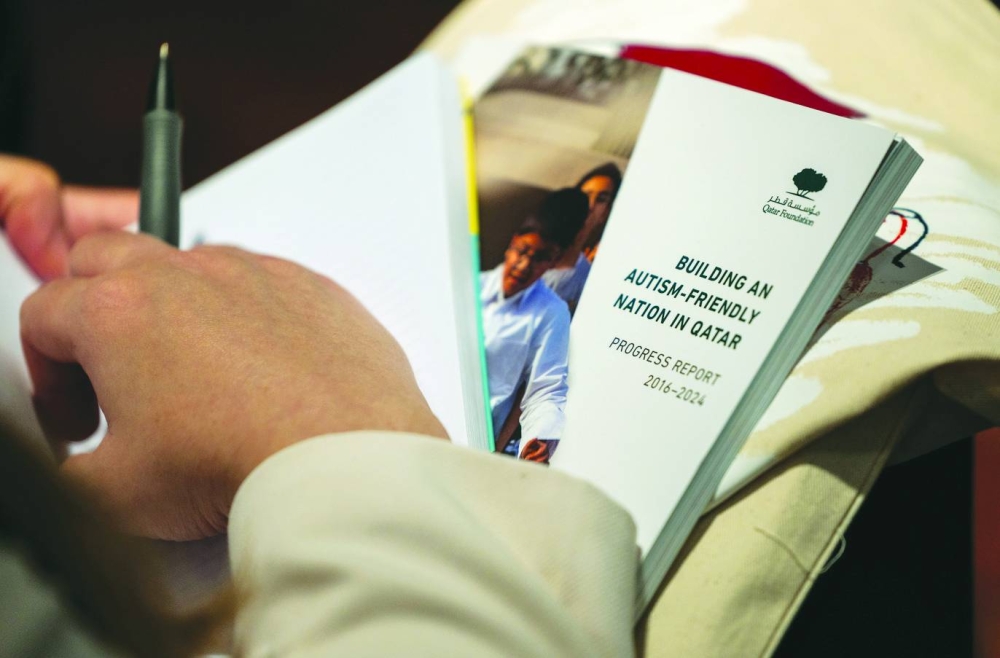Increased inclusion in education, careers, and society, coupled with greater public awareness, is crucial for breaking down stigma and improving early diagnosis and intervention for autism, an expert at Sidra Medicine has said.
Senior attending physician Dr Alia Satti, speaking at a Qatar Foundation (QF) event Sunday marking the launch of its comprehensive 10-year autism strategy, highlighted the persistent barriers hindering effective support for individuals with autism and their families.
Addressing the challenges, she said that symptoms of autism can be subtle or easily overlooked, necessitating increased awareness and education among parents, frontline clinicians, and educators.
Dr Satti referred to the potential of artificial intelligence (AI) and technology-driven digital screening methods to provide more objective assessments, alleviating pressure on both parents and clinicians.
However, she underscored that societal stigma remains a significant obstacle.
“Many parents, not all, rightly think the diagnosis may be an obstacle in their child’s journey of education, society inclusion, or career, and we need to do a lot of work on this because it could be the biggest obstacle,” Dr Satti said, noting that the fear of discrimination in schools and workplaces prevents some parents from seeking a diagnosis for their children.
Asked about how to address stigma, she underlined the importance of increased representation and open dialogue.
“I can think of two things: One is having more and more people with autism coming forward and talking to the community. Secondly, inclusion,” Dr Satti said.
By sharing their experiences, she said that autistic individuals can help dispel misconceptions and foster a greater understanding of autism.
Dr Satti stressed the need for greater inclusivity in education, careers, and society as a whole.
Addressing parents’ concerns about acceptance in schools, she called for a more inclusive environment where autistic children can thrive.
The expert also identified practical challenges in accessing assessment and therapy services.
“If parents managed to jump these two hurdles, with awareness and stigma, and then they look for assessment, these would then be another struggle where they’ll face or confronted with waiting lists or lack of expertise,” she said.
Dr Satti advocated for increased capacity and a multidisciplinary approach to assessment, involving physicians, psychologists, and occupational therapists, among others.
She also cited the financial burden of autism care, noting that therapy and additional educational support can be a significant expense for families.
“Affordability ... therapy can be quite draining for parents financially, as well as education, because they need additional support, that’s a huge expense,” she pointed out. “Insurance often does not cover most of these services. But I think we really need to advocate for this.”

Dr Alia Satti called for a more inclusive environment where autistic children can thrive, addressing parents’ concerns about acceptance in schools.



